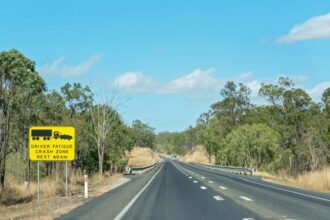COTA Insurance tips for buying a car
A car can be a large financial purchase, so it’s always a good idea to plan ahead to ensure a smooth purchasing process. Follow our tips for buying a car here.
What to buy?
When considering what car to buy its best to do your research before you head out to the car yards. Research the type of car that you want and consider whether the car will suit your needs and lifestyle. The best way to do this is to do some online research. Check out the manufacturers websites, read customer reviews and visit the following websites:
- Australasian New Car Assessment Program (ANCAP) ratings
- National Motor Vehicle Theft Reduction Council Car Security Scores.
Safety is another important factor when deciding what car to buy. Not all cars are made the same, so it’s important to consider a vehicles safety features before making your decision. The ANCAP ratings (mentioned above) can give you valuable information about the safety of a car in the event of a crash. Ratings are based on independent testing and technical assessments – full details are available on their website.
A vehicles fuel consumption and other environmental factors can be a very important part of that early decision making. Car yard vehicles have a sticker that displays the car’s fuel consumption in litres per 100km and its carbon dioxide emissions – the lower the numbers, the better. The Green Vehicle Guide is another useful resource that can assist in the purchase of a more environmentally friendly vehicle.
Budget
It’s a good idea to set your budget for your car purchase in advance. Decide how much you want and can spend and stick to that when doing your research. If you need to organise finance, it is best to do this in advance. Consider whether you want to get a loan from your bank or credit union, through a car dealer or use alternate finance options like home loan redraw facilities. Having this prepared will assist in the purchase process.
Other things to consider in the decision making process can include:
- car insurance costs
- possible resale value
- warranty
- model lifecycle.
Trade in or private sale?
When deciding on what to do with your existing vehicle you need to decide whether to trade it in or sell it privately. Consider these points when making that decision:
- If you are relying on selling your current car to buy your new one, a trade in can be the quicker and more convenient option
- A car yard vehicle is (usually) sold with a warranty and the title must be unencumbered
- The trade-in value is more than likely going to be lower than your private sale sell price
- Selling your care privately can take longer, more time and have extra costs
- Having all of your service records and/or receipts can assist in getting a better trade-in deal
- A well-presented, neat and tidy car in a good condition will also help in securing a good trade-in value
- If your vehicle has some interior or exterior damage or needs repairs, a trade-in may take the vehicle as is, unlike a private sale
- If you have found a vehicle to purchase through a private sale, then private sale is also your best option.
Test driving
Once you’ve narrowed down your vehicle choice to several different options, start visiting car yards to arrange test drives. If possible, try and organise a 24-hour test drive and do the following:
- Drive on several different road and traffic conditions, such as idling, slow speed, highway speed, roundabouts, speed humps and bumpy roads
- Ensure you like all the features and benefits of the car, and spend some time to set up the car as you would have it
- Take a friend along for a second pair of eyes and ears
- Ensure you reverse, park, stop and open the boot as part of your test drive
- Watch for warning signs like smoke, dash lights and strange noises
- Take notes so you can compare vehicles later
- Consider organising a vehicle inspection by a third party specialist
- Where possible, time your test drive so the car is started and run from cold. It can be a good way to highlight any potential issues.
The purchase
When it comes to purchasing a vehicle there are several things to consider:
For most states in Australia, a vehicle must have a roadworthy certificate (RWC). This applies to new cars and second-hand cars. This is a requirement before car ownership can be transferred. It is best to have the seller supply it, however if you choose to take responsibility for getting the RWC you will also be responsibility for any repairs needed to bring it up to a roadworthy condition.
As previously discussed, make sure you have organised your finance prior making the purchase of the vehicle. This will make the process much smoother. Use a safe funds transfer mechanism for payment of the vehicle, but only when you are ready to take delivery of the car.
Be aware of vehicle extra’s when making your purchase. Extra’s may not be included in the purchase price, this is especially the case for brand new vehicles, where even the type of paint/colour you choose can increase the final price. Stamp duty is another example of an ‘extra’, this fee isn’t paid until the transfer of the vehicle takes place – more information can be found at www.revenuesa.sa.gov.au/taxes-and-duties/stamp-duties/motor-vehicles.
Negotiating the price
When it comes to price negotiations, this can be the hardest part for many people. It may help to keep these things in mind when negotiating:
- Make sure you know in advance what is a reasonable price for the vehicle, knowledge will give you confidence in negotiations
- Ask someone with experience to come and help
- If there isn’t any leeway on a vehicles price, ask for a discount on servicing, or a good deal on vehicle extras or options such as window tinting or a tow bar
- Stick to your budget. If the negotiations don’t get close to your budgeted price, thank them and walk away, this may lead to a further price drop, or it may not, but at least you don’t go over your budget
- Resist any pressure and sales ‘lines’ from the car dealer, make sure you aren’t rushed into the purchase, be prepared to walk away
- Dealers must quote you an all-inclusive, drive-away price that includes dealer fees, stamp duty, registration and so on. Make sure this is the price you are getting
- Don’t sign anything until you’re completely happy – if the car needs accessories fitted, or any other adjustments, it can be difficult to get this done after the purchase has been completed
- Make sure all paperwork is thoroughly completed, do not leave any sections blank. If it is a private sale, ask to see the owners licence (and check their name and address) for the completion of the registration transfer
- If paying a deposit, make sure it is fully refundable first.
Other handy car buying tips:
- Don’t look at more than three cars a day otherwise you’ll quickly grow confused
- Never buy the first car you see. Make sure you shop around and drive as many cars as possible to get a good idea of what you can expect
- Take along someone to be your supporter or expert guide
- Check the owner’s manual for a regular service history
- Consider a vehicle inspection by a third party expert, such as your mechanic, your states Royal Automobile Association / Club or a private or commercial vehicle inspection service such as RedBook
- Check that the vehicle is unencumbered, that is that the title is clear of any outstanding financial commitment. To do this you need to obtain the vehicle identification number (VIN) or chassis number from the vehicle, then check the online Personal Property Securities Register or phone 1300 007 777. Full information is available at www.ppsr.gov.au/
- If the price isn’t right or it is out of your budget, be prepared to walk away, even though you may love the car
- Always remember to arrange insurance cover before you drive away in your newly acquired car.
Happy car buying!
References
www.choice.com.au/transport/cars/new/buying-guides/cars
www.carsales.com.au/editorial/details/top-tips-for-buying-a-used-car-121389/
www.caradvice.com.au/507868/buying-a-new-car-here-are-11-things-you-should-consider-first/











